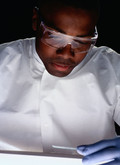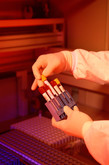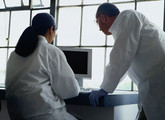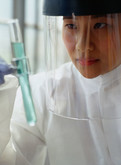Biosimilars/Research
|
Posted 10/03/2010
According to Mr Hans Baumeister and Mr Steffen Goletz of Glycotope, human cell lines providing a human glycosylation pattern – such as those of Crucell (PER.C6), Cevec (CAP) and Glycotope (GlycoExpress) – have attracted increasing amounts of attention over the past years. In the case of biosimilars, regulatory approval now requires an extensive programme of bioequivalence studies to be undertaken to characterise the product in terms of its biochemical properties, safety and activity. As a consequence, glycosylated biosimilars need to be equipped with a similar pattern of glycosylation. For example, the degree of sialylation should not deviate by more than 20% from that of the original product. Hence, the chosen cell clone with high productivity has to be able to provide post-translational modifications as closely related to the originator’s cell line as possible. However, since glycosylation differs within clones, during the bioequivalence study it is often realised that the product carries different carbohydrates, usually resulting in a hyposialylation; this requires the screening process to be repeated in order to identify a new cell clone that is able to provide the equivalent glycosylation. Several glycosylation analysis technologies are available for the development and production of glycosylated biotherapeutics, applicable to both biosimilars and second-generation ‘biobetters’ (see Table 1).






















